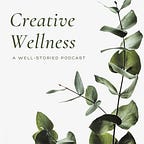One of my favorite book series is Shades of Magic by V.E. Schwab.
In the second book in the series, A Gathering of Shadows, a priest named Tieran Serense is quoted as saying (emphasis my own):
"Magic and magician must between them balance. Magic itself is chaos. The magician must be calm. A fractured self is a poor vessel for power, spilling power without focus or measure from every crack."
There's an incredible wealth of magic that I'd like to help you usher into your writing life through this newsletter, but magic is indeed chaos. If you try to bring too great a creative vision to life without first attending to the fractured parts of your soul, then all that magic will begin to slip through your fingers. Your vision will fall apart.
What do I mean by the fractured parts of your soul?
First things first, allow me to make something clear: you are not broken. All of us bear our fractures and scars, but there is no pain in this life that cannot be healed with a generous dose of time and compassion.
When I speak of fractures, I'm talking about the pains we carry with us. The emotional wounds that haven't yet scabbed over and begun to heal.
In Issue #1, we established that you're a storyteller who holds the power to rewrite your story each and every day and, in doing so, make your life a work of art. But to rewrite your story, you must first recognize the story you're currently living out.
Or rather, the many stories.
All of us live our lives according to a set of beliefs, which are informed by the stories we bear. Some of these stories come from our lived experiences. Others we learn from family members and friends, teachers, co-workers, and other important figures in our lives. We even adopt a number of scripts directly from society.
Regardless of their origins, some of our stories and beliefs will be positive. I believe I'm capable of completing difficult creative work, for example, because I've proven to myself time and time again that I can. (I wrote this newsletter after all, didn't I?)
Unfortunately, most of us also carry around a set of limiting beliefs.
These are beliefs that hold us back from pursuing the truer, more beautiful visions we have for our lives. Worse yet, most of us don't even know we're carrying them around. Instead, limiting beliefs simply worm their way into our subconscious minds as we go about living our lives.
Scary, right? So how do we change this?
Just as an iceberg is hidden largely underwater, the majority of our beliefs dwell below the surface of our awareness. But as Carl Jung once said, "Until you make the unconscious conscious, it will direct your life and you will call it fate."
Writer, don't allow your subconscious to determine the state of your writing life.
You are the master of your fate. You hold the power to rewrite your self-limiting stories, heal the fractures in your soul, and embody the calm needed to bring all of your incredible creative magic to life. ✨
If we want to take charge of our lives, then we must do as Jung suggested and make the unconscious conscious. With this in mind, consider one all-important question this week:
What self-limiting beliefs do I carry about myself, my art, and my truest, most beautiful vision for my writing life?
If you're unsure of what these limiting beliefs might look like, then consider some of the following examples from my personal experience:
I'll never be good enough to write the stories I want to write.
If I was a real writer, then writing would be easy.
Serious writers write at least 1,000 words a day.
My interest in fantasy and romance is silly; people aren't going to take my books seriously.
I'll know my stories are good enough when I land a six-figure book deal.
I'm not talented enough to make a living as an author.
If I heal from my depression, then how will I know how to write about pain?
I'm not asking you to do anything with these beliefs just yet. The task of rewriting old stories takes time and effort, and simply exploring and listing these painful beliefs is likely draining enough for now. Again, be gentle with yourself.
As you uncover your limiting beliefs, try not to personalize them. Remember, you aren't broken. You aren't even fractured. You're a human being with wounds in need of healing, just like the rest of us.
The limiting beliefs you uncover might prove emotionally distressing, but this isn't necessarily a bad thing. In her breakthrough book, Adult Children of Emotionally Immature Parents, clinical psychologist Lindsay C. Gibson writes...
"Likewise, Polish psychiatrist Kazimierz Dabrowski (1972) theorized that emotional distress is potentially a sign of growth, not necessarily illness. He saw psychological symptoms as coming from a freshly activated urge to grow and coined the term "positive disintegration" to describe times when people break down inside in order to re-organize into more emotionally complex beings."
As a storyteller, you probably know from personal experience that you often have to tear a story apart to discover the heart of what it's meant to be.
Don't be afraid to do this work for yourself, writer. Dive in deep. 🌿
✍️ Author & Writing Mentor
🖥 www.well-storied.com
💌 kristen@well-storied.com
📸 @kristen_kieffer













